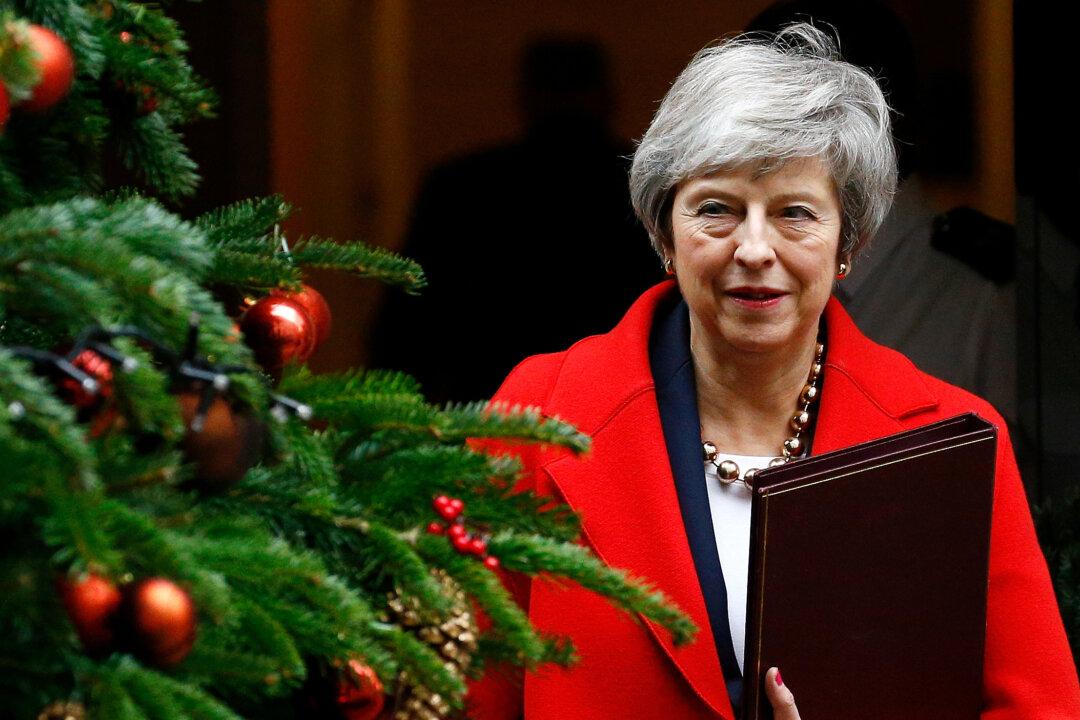British Prime Minister Theresa May has cut her Cabinet ministers’ Christmas break short to prepare for a “no deal” Brexit, as the March 2019 UK–European Union divorce deadline looms.
Members of the British Parliament are normally scheduled to return to work Jan. 7, but May has told her ministers to meet Jan. 2, cutting into their Christmas recess, to press ahead with preparations for all eventualities—including a no-deal crash-out.





